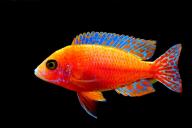Dyscalculia is a disorder in which arithmetic is difficult or not given at all, other mathematical areas with normal intelligence. Simply put, a person with dyscalculia is unable to count.
How does dyscalculia manifest
Difficulties in writing and naming numbers; lack of understanding of the process of solving simple mathematical problems, without the use of visual material; misunderstanding of the concept of "number", bit depth; lack of ability to perform logical-abstract actions.
At what age does dyscalculia peak
Dyscalculia can be identified already in preschool age, when the child begins to develop arithmetic abilities, its symptoms persist into childhood, adolescence and even into adults.

What to do if your child has dyscalculia
The most effective intervention for dyscalculia, as well as dyslexia, is early diagnosis. The sooner we identify the problem and give children the tools they need to adapt to learning, the more likely we are to avoid problems with academic failure, low self-esteem, or more serious impairments.













